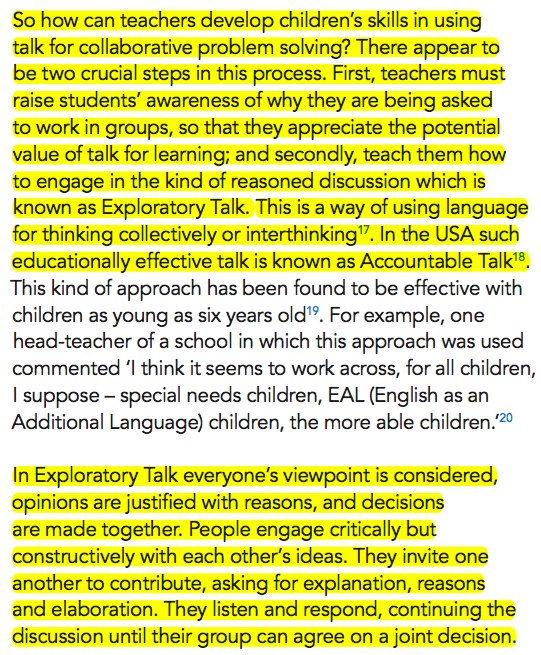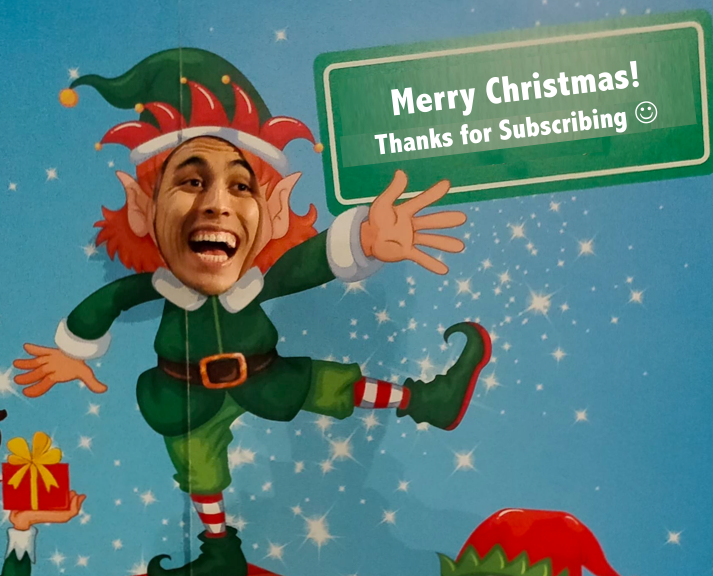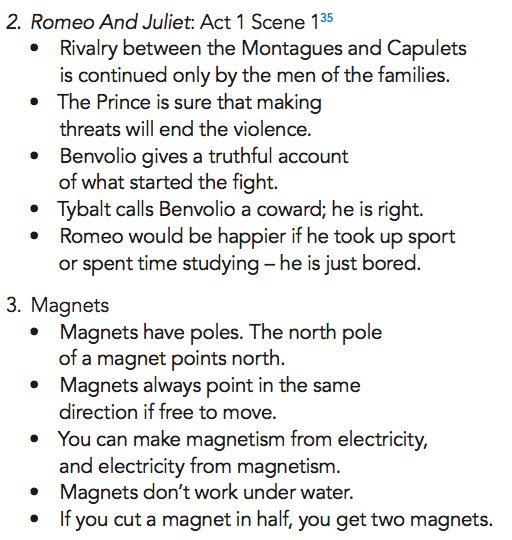Dear TOT readers. Merry Christmas!
The engagement with these weekly takeaways has grown and grown, from 95 email subscribers to TOT last December to 950 now (if you haven't signed up yet you can do so here), and it's been wonderful to have emails and tweets from educators all around the world expressing how much they enjoy these weekly digests of edu-reading. As much as anything else, it's been wonderful to see engagement with these resources grow within my own school. I was delighted the other day when, out of the blue, a colleague said ‘I downloaded MARGE yesterday, looking forward to reading it over the holidays!' Thank you to all of you for continuing to read, engage, and question.
Now, to this week's TOT.
T1 is an unrolled twitter thread, summarising a paper that I read about teaching Oracy to school-aged learners. The role of speech in the classroom is something that I'm becoming more and more interested. The Feb ERRR podcast will include some discussion of ‘talk moves', and PD to help teachers develop this, and I look forward to exploring especially Cambridge University's ‘Thinking Together‘ resources in the 2019 school year.
T2 is a cool resource from Jo Morgan, the queen of maths teaching resources, which I came across via @mrbartonmaths' podcast discussion with Jo.
T3 is a really interesting set of ‘weekly writing challenges' that seem to be an excellent way to support deliberate practices of writing strategies (keep an eye out for explorations of ‘The Writing Revolution‘ through this blog and perhaps a podcast next year too).
T4 is a must read, challenging our assumptions about ‘digital natives' and giving tips about how to be a critical consumer online.
T5 is a stimulating framework, T6 a PD approach very similar to the one taken by my own school this year, and T7 an interesting study ($$$)
T8 is five of my most popular posts from 2018. And if you haven't as yet read Effect Sizes, Robust or Bogus? Reflections from my discussions with Hattie and Simpson, I hope you enjoy it. It captures one of my deepest dives yet into ed-research, and reflections on how that exploration changed my mind on the important topic of effect sizes.
T9 is a Christmas themed article sharing some different perspectives on Santa, and lying!
Today is the last day before the Aussie summer holidays, and I haven't decided whether or not I'll do some TOTs over the next month or so, but first week back commences Jan 29th, so you'll be sure to hear from me around then if not before.
Enjoy : )
(all past TOTs here), sign up to get these articles emailed to you each week here.
The development of Oracy skills in school-aged learners, via @profneilmercer and @LynDawesMaercer

A section that I found particularly interesting was on developing listening skills. This is something I touched upon (in that I need to work on this) in thought shrapnel a few weeks ago (
This paper was a great primer. Can't wait to delve into this stuff more in 2019! What's the best resource for building my capacity to teach Oracy @profneilmercer ?
Here's the link again for anyone interested: languageresearch.cambridge.org/images/Languag…
Maths teachers: Topics in depth. History and insight, via @mathsjem
Today, via @mrbartonmaths, I heard about @mathsjem‘s ‘Topics in Depth'! A series of slideshows that highlight world class resources, historical anecdotes, and great insight, for teaching core maths topics: https://t.co/TDE14LXXTt Please record screencasts soon @mathsjem! pic.twitter.com/YAV9nFZhZu
— Oliver Lovell (@ollie_lovell) December 19, 2018
English teachers: Weekly Writing Challenges, via @TLPMsF
Wow. Just came across the weekly writing challenges of @TLPMsF. This is some good looking stuff! https://t.co/18LaV8n7vN ht @sputniksteve pic.twitter.com/diWYPemq0h
— Oliver Lovell (@ollie_lovell) December 20, 2018
The best, quick, article I've seen on how to tell real news from fake on the internet
A fact checker, historian, and a Stanford undergrad clicked onto a Web page… See what happened, and how to tell real news from fake, in this excellent article. Ht @DTWillinghamhttps://t.co/SGxLoIt8IP pic.twitter.com/P3YUAXPzAa
— Oliver Lovell (@ollie_lovell) December 19, 2018
Categories of teacher: Elitist, romantic, radical, egalitarian, etc, via @mfordhamhistory
I'm doing a session on the philosophy of education with trainees tomorrow, and shall be attempting to make “schools of educational thought” a little more complex. Do you see yourself in one or more of these? pic.twitter.com/QfedutUszH
— Michael Fordham (@mfordhamhistory) December 12, 2018
An interesting approach to teacher performance review
Sounds like an engaging method of approaching teacher performance review! https://t.co/OIfk2Z6Dso ht @adamboxer1 pic.twitter.com/tQtd8soKth
— Oliver Lovell (@ollie_lovell) December 15, 2018
The 8-hour sleep challenge, giving credit for extra sleep, results increased
The 8 hr sleep challenge. Extra credit for sleeping during exam week, and those who did it performed better in the final exam anyway. https://t.co/44UbQQEFkb ht @DTWillingham pic.twitter.com/oIRSdClkP9
— Oliver Lovell (@ollie_lovell) December 15, 2018
Five of my most popular posts from 2018
- Effect Sizes, Robust or Bogus? Reflections from my discussions with Hattie and Simpson
- ‘Flippin Heck!’ 21 things I’ve learnt from Mr Barton’s two discussions with Dylan Wiliam
- The Science of Learning: Resources for 4 PD sessions (you can download and use/modify these PD resources to run a session if you're keen. Links within the post)
- Managing overwhelm: How do you curate and consume your educational reading list?
- What’s the impact of classroom displays on student learning?
ps: Most popular ERRR podcasts were with Dylan Wiliam, Craig Barton, Adrian Simpson, and John Hattie.
Should I lie to my children about Santa?
We asked five experts: should I lie to my children about Santa? An interesting variety of responses! https://t.co/ZEigGoZ8x9 via @ConversationEDU
— Oliver Lovell (@ollie_lovell) December 10, 2018









